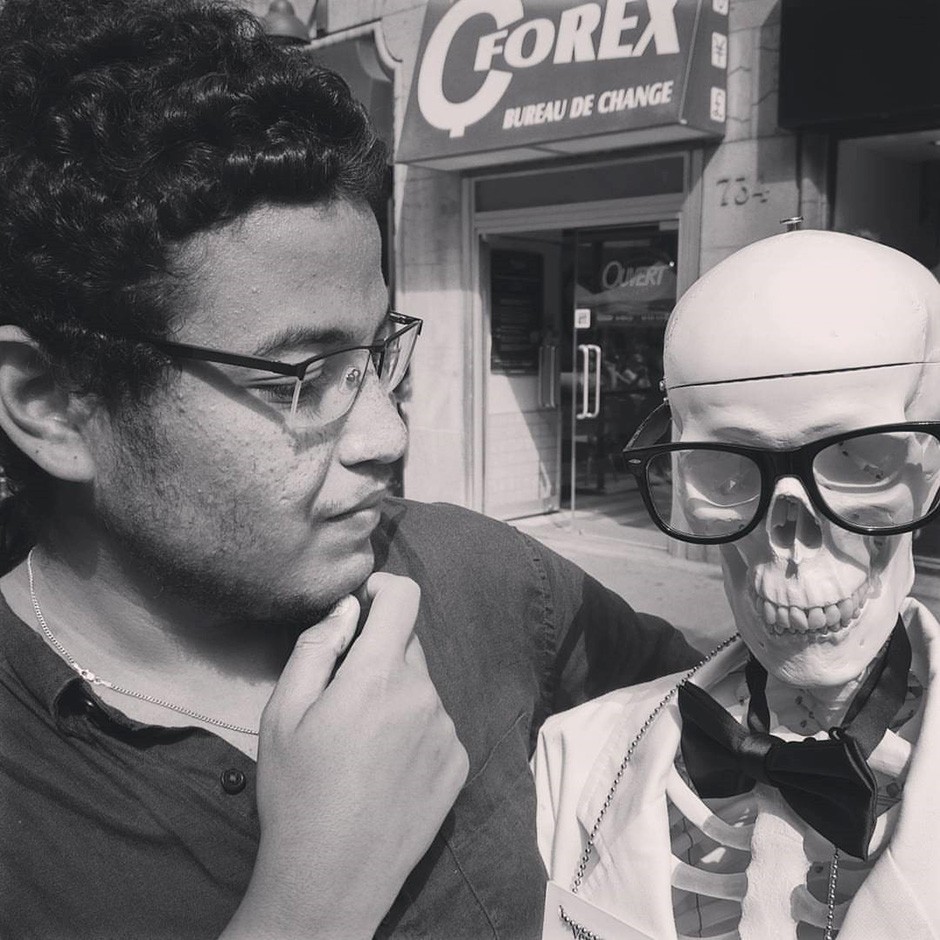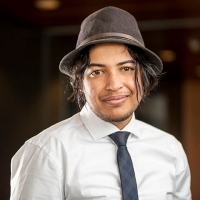Keroles Riad is a doctoral candidate in the Individualized program (INDI). Keroles holds a BEng in Mechanical engineering and an MSc through the INDI program. Keroles is a recipient of the Quebec Lieutenant Governor Youth Medal, and is the driving force behind Concordia’s successful Waste Not, Want Not student-led composting program.

First off: you are doing fine. Trying to go through a PhD is hard under the best circumstances, let alone in these trying times. Mentally, this is an exceptionally taxing situation because many of us, me included, are extremely competitive and too used to holding ourselves to very high standards. No matter how much or little progress you feel you are making during this shutdown, be kind to yourself.
I also recognize that doing a PhD is very different from one field to another. Requirements vary from doing experiments in the lab, to field work, to surveys, to coding, to reading an inordinate number of books. Each PhD student’s journey is unique. However, I would like to share how I am trying to adjust in my PhD situation with the hope that some of it may be of some guidance to some of you.
The goal of my research is to develop new materials for 3D printing. This means that I work with chemicals in the lab most of the time. To paint you a picture: I essentially mix chemicals and hope they do not blow up in my face. Though, I regularly light things on fire. So, the biggest challenge of this shut down for me is that I can no longer do experiments as the entire university including my lab is shut down. Further, like every other PhD student, I am always juggling too many things that I am constantly burnt out. When this pandemic started shutting things down, I felt that everything I have been trying to hold together with duct-tape is collapsing. Despite my burnout, this was very frustrating. I went so far as to write a blog post titled: “I had a plan”.
The first thing I did was: catch up on sleep for a week.
After that, I went about planning and reviewing my priorities. Even though, I need to do experiments, I also recognize that I have been doing a fair bit of experiments up to that point. I was in fact falling behind in analyzing, organizing, and translating experimental data into publications that contribute to my thesis. I was also falling behind on literature reading. The experiments I have done have already opened many questions that I am yet to find answers for. Over the years, I have put aside papers I needed to read in pursuit of those answers, but I am yet to read them. Finally, I made a very rough outline for what I imagine my thesis to consist of. I now realize that there are chapters I can work on and even finish right away. In summary, my priorities during this time are data analysis, fetch answers in the literature, and write papers and thesis.
I realized that from a purely academic point of view I still have many things that I can still juggle. In fact, the bright side is that I am now forced to focus on fewer things. Those fewer things are enough to keep me busy. Further, focusing on “fewer” things allows me to do them better and more efficiently. For example, having dropped “nice-to-have-yet-unnecessary” experiments, I was able to draft a journal paper that is now being reviewed by my co-authors. If these experiments I dropped prove necessary, I will do them when the lab opens.
In a way, this pandemic has helped me get off autopilot, and recognize the value of the work I have done prior to the shutdown and be more intentional in translating that work to tangible progress.
I must also say that I do not have to financially support a family, raise babies, or take care of anyone who is sick. My immediate family is not overseas, and I am very lucky to have a great support system right here. The priority must always be to take good care of yourself and others around you. This is a time with many additional sources of anxiety: financial, health, and academic. These difficulties notwithstanding, I hope you are also able to see a bright side that allows you to better advance some aspects of your thesis and research
About the author


